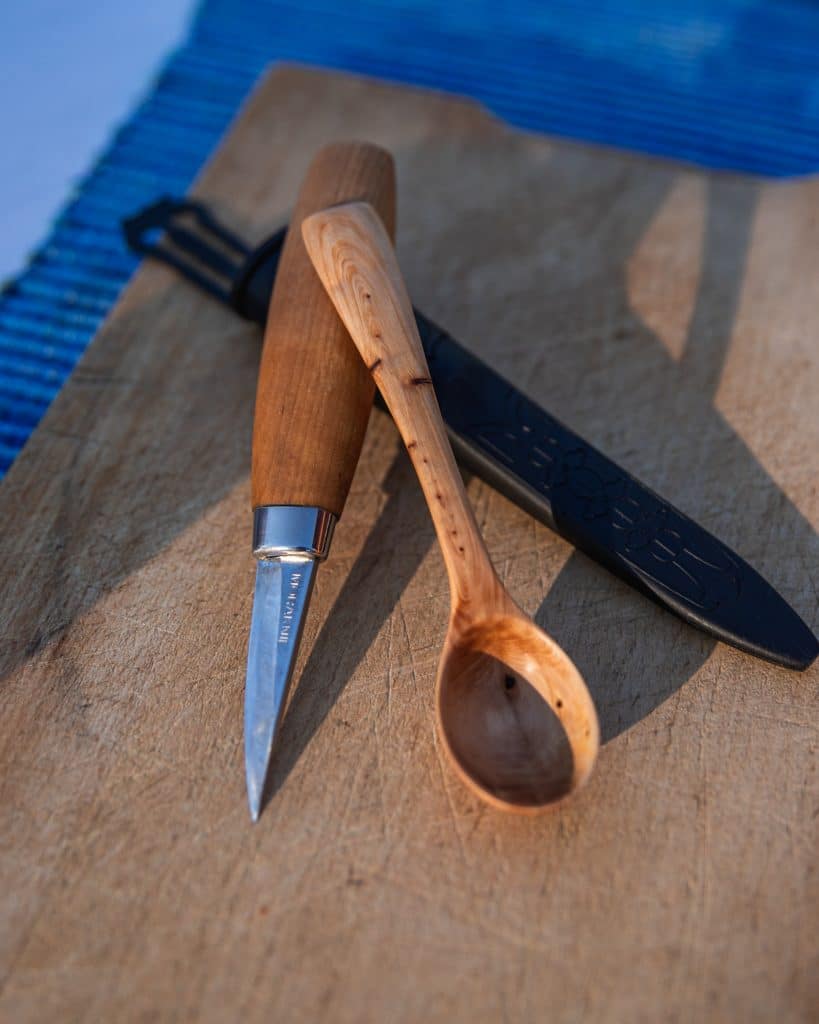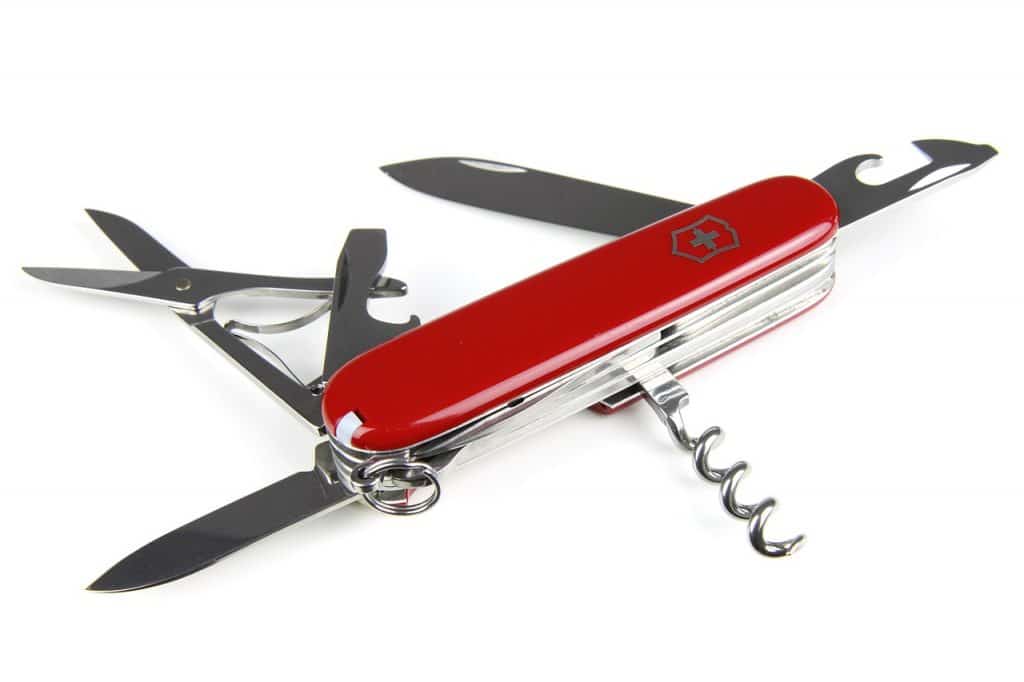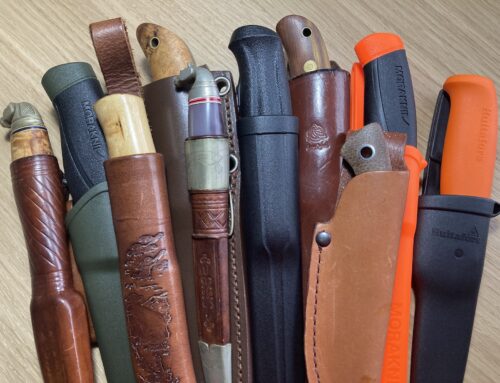We as bushcrafters do love a nice new “shiny”, and in a similar way to our colonial cousins with there attractions to firearms, we want to be able to carry it all the time. However, and this is a big one, the chances are you are breaking the law in doing so.
Many people will say that they can carry a knife under 3 inch in length, a lock knife, or a saw or fixed bladed knife.
If you look at the section in law which knives fall under, it spells it out in clear terms, and I’m not talking about the plethora of opinions from the bloke down the pub, I am referring to the law.
The law contained in Section 139 of the Criminal Justice Act 1988, provides the offence of possession of a bladed or pointed article in a public place. To understand the law, you need to be able to understand how it has been written, and which each part means.
Let’s start with “Possession”, this is quite simple, so if it upon your person, a bag you’re carrying, or vehicle you’re travelling in, you are in possession of it. If it’s locked in a box in the boot of your car, you are still in possession of it.

Now let’s look at the “Public Place”.
This isn’t quite as straight forward as you would think, the definition for Section 139 is as follows “public place includes any place to which at the material time the public have or are permitted access, whether on payment or otherwise”.
Your local park would fall under this, as would Tesco’s when it’s open; however, land which is normally private such as the location of the Bushmoot’s, would fall into the category of being a public place when there is an event taking place.
The reason for this comes under the part which states “permitted access”, as you are only allowed to enter the site if you have paid to come along, or if it was free to enter you are again only allowed to be there as you are attending the event.
Glastonbury festival is held on private farmland, however people buy a ticket and are permitted access, this then makes it a public place.
We have now established if you are in ‘possession’ and in a public place, what does it mean by a bladed or pointed article. This is the simple bit, does it have a sharp blade, or a point, if the answer is yes, then you guessed it, it is a knife.
Now there is an exception to this rule, in which the law recognises that a folding pocket knife does not fall into the offence, but other knives do.
So that is the offence bit covered, now the question is, what knives come under this section of law? To put it bluntly (no pun intended) everything except a folding pocket knife.
A folding pocket knife is a knife which folds out and back in again with no locking mechanism, and a holding spring to keep it in a closed position, it must also have a blade length not exceeding 7.62cm (3inch). The easiest example of this would be a traditional Swiss Army knife.

The law was written for all other knives, such as lock knives, or ones with a fixed blade.
Most if not all bushcrafty people use one of these knives, and we all need to know that the law affects us.
To give an example of this type of knife, you could look at a simple Opinel No.8 knife. This knife folds open, and then with a twist of the metal ring, it is locked in the open position. By definition, this is a lock knife, and therefore it is an offence to have it in a public place. This offence would also apply if you have your fixed bladed knife on your belt.

Right so now that we are in public with a knife which falls under the definition of the offence, are we going to be taken to court and dealt with?
Well, this next bit falls to the person, when you’re in the woods actively involved in some well-earned Bushcraft time, you have a good reason to have your fixed or locking bladed knife with you. However, when the inevitable time comes that you’ve run out of bacon, it’s time for a trip to the shops. You either leave the sharps in camp, or if this isn’t an option you put them in the car or your bag.
This is where all the confusion usually comes for people, so to clear this up. The offence is complete if the knife is “in your possession”. So if the police stop you and they locate the knife you may find yourself in court, and you may have a perfectly good reason to have the knife upon you, however proving this falls to you.
The offence has been committed, and all that the courts need to prove is the charge.
The full wording for this is as follows…
“On (specific date) at (township) had with you, without good reason or lawful authority, in a public place (specific location): (A) an article which had a blade or was sharply pointed, namely (specific article)”: (B) a folding pocket knife which had a blade the cutting edge of which exceeded 7.62cm.”
The bit which is left to the accused to prove is the “without good reason or lawful authority”, so if you are engaged in some bushcraft activity, you could say that you have a good reason. Buying bacon at the shops is not a good reason. The lawful authority could well be the postman bringing you a new shinny, due to this the only real option for us would be the good reason bit.
So to sum up, if you have anything other than a Swiss Army type knife (non-locking, sub 3″ blade), you need to a have a good reason to have it with you.







Leave A Comment
You must be logged in to post a comment.